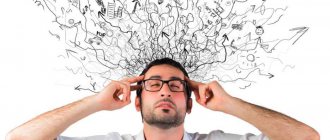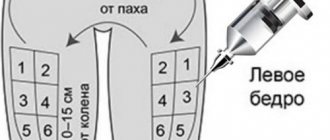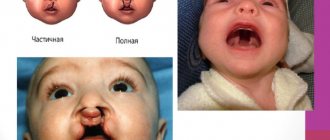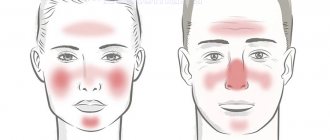Medical information is reliable Checked by Eremin Alexey Valentinovich
Lack of memory for certain events is called amnesia. It does not always indicate a pathological process; for example, many cannot reproduce the first years of childhood. But most often, amnestic syndrome indicates the presence of a number of neurological or mental abnormalities. According to statistics, 25% of people on Earth suffer from memory impairment to one degree or another.
Classification
Depending on the degree of memory loss, amnesia can be complete or partial. In the first case, a person cannot remember anything from a period of his life, and in the second, he observes vague fragments of events. There is also selective or local amnesia, when the patient loses only a specific skill. This condition is characteristic of psychogenic disorders. According to the time of forgetting, this deviation can be:
- retrograde in the absence of memory for everything that happened before the onset of the disease;
- anterograde, when everything that happens after the first signs of the disorder is forgotten;
- combined (combines retrograde and anterograde amnesia);
- fixation – forgetting what is currently happening, usually lasts for 2-5 minutes.
The type of course of amnestic syndrome can be:
- regressing with gradual recovery;
- stationary, in the absence of positive dynamics and without signs of deterioration, forgetting usually applies only to a certain situation;
- progressive – gradual loss of memory up to its complete loss.
There is also retarded memory loss, when a person’s events are erased some time after stress, acute psychosis or traumatic injury. Immediately after regaining consciousness, he talks about what happened, but later forgetting sets in.
2.Alcoholic dementia
Dementia can be caused by various toxins affecting the brain. Alcohol-induced dementia, as the name suggests, is the result of excessive drinking, especially over a long period of time. Alcohol can also cause short-term memory loss. Only about a quarter of patients will make a full recovery from alcohol-induced dementia, the rest will not regain their previous brain activity, and some cases require careful care for the rest of their lives.
Visit our Neurology page
Transient and permanent amnesic syndrome
Transient amnesia is observed with a number of deviations associated with various factors, it happens:
- Transitional global. It is observed in middle-aged and elderly people, more often in males, and lasts for several hours (from 4 to 12). In this case, patients do not lose their identity, but they experience confusion. However, there is no evidence of cerebral ischemia. During the study, the patient demonstrates a profound loss of memory for all events occurring at the time of the attack. A return to the original state is observed within 1-2 weeks to 2-3 months.
- Transitional epileptic. Occurs in patients with epilepsy, sometimes amnestic syndrome manifests itself as the first sign of the disease before the onset of seizures.
- Injuries and head injuries. Typically, after a TBI, an episode of temporary retrograde amnesia is observed; the longer it lasts, the more negative the prognosis, and the likelihood of cognitive impairment, mental disorders, and social problems increases. Post-traumatic syndrome also includes anxiety, irritability and complaints of somatic pathology.
- Alcohol blackouts. Memory lapses associated with alcohol abuse mean that a sober person cannot remember events when he was drunk. But after drinking a strong drink, they easily return.
Complete memory loss is observed in progressive diseases that cannot be completely cured. This happens with dementia, mental illness, inoperable brain tumor and other disorders. Therapy in this case is to stop the deterioration of the condition and take measures to adapt the patient to his amnesia.
How to improve memory. Recommendations from the Neuroscience Center
If you observe alarming symptoms in yourself or in people close to you, indicating memory problems similar to those indicated above, then you need to go to an appointment with a neurologist, neuropsychologist or therapist and undergo a series of special diagnostic tests. If you want to immediately start fighting an undesirable phenomenon before receiving the doctors’ verdict, then take action - start training your memory.
Here are some exercises to improve memory:
- If possible, perform your usual tasks with your eyes closed, from memory;
- If you are a left-handed person, do everyday tasks with your right hand, if you are right-handed, then with your left. Try this rule, for example, writing, ironing clothes, drawing, etc. – You will soon feel a positive result;
- learn Braille, which is used by blind people when reading, or learn sign language - this is useful for memory and can be useful in life;
- type texts on the keyboard with both hands, using all fingers;
- do some handicrafts - start embroidering or knitting;
- learn foreign languages and speak them more;
- try to distinguish the denomination of coins blindly, feeling them with your hands.
In addition, expand your range of interests, read more, visit places and institutions you have not been to before, go to plays and performances, walk in parks, meet and communicate with people, make new friends.
Perform the recommended exercises, follow the listed rules, take care of your health, and your memory will not fail you until old age!
Manifestations of amnestic syndrome
A classic sign of amnesia is the inability of a person to recall a certain period of time in his life. Most often, recent events are forgotten first, and then more distant ones. In a regressing process, recovery is observed in the reverse order. Some types of disorder involve false, fictitious memories, or confabulations. With their help, the body tries to fill the gaps. At the same time, the person sincerely believes in the truth of his “memories.”
Amnestic syndrome after a stroke is characterized by hypo- and paramnesia (general memory loss and confusion of present and past events). At the same time, speech impairment and movement deficits are noted. Memory loss occurs in psychoorganic syndrome, and cognitive dysfunction is also observed. A person loses the ability to assimilate new information, his attention decreases, and his thought processes slow down. With dissociative amnesia, the patient becomes absent-minded, begins to wander, and often experiences affective disorders. Transient global loss of memories is characterized by complete disorientation. With Korsakoff's syndrome, several types of amnesia are often combined.
With a stationary disorder, a person often suffers and worries about his condition, is tormented by a feeling of guilt, and becomes depressed. Progressive amnestic syndrome leads to complete helplessness; a person can leave home and get lost in a familiar area. There is a gradual loss of skills and knowledge. At the end there is complete disorientation and constant care is required.
Memory impairment in children
In children, diagnosis is even more difficult. This is due to the fact that memory impairments can manifest themselves as a result of congenital diseases or can be acquired during life. There are two main forms of memory loss in children: hypomnesia (problems with remembering and subsequently reproducing information) and amnesia (complete loss of any part of memory). In addition to diseases of the intellectual sphere, mental illness, poisoning, and comatose states can lead to memory impairment in children.
Most often, children are diagnosed with memory impairment due to asthenia or an unfavorable psychological climate. Signs of pathology in this case are a lack of perseverance, problems with fixation of attention, and changes in behavior.
As a rule, children with memory impairments do poorly in school. Social adaptation is often difficult for them.
Problems with memory in childhood can be associated with visual impairments - after all, a person receives most of the information through vision, and visual perception is very developed in childhood. In this case, the child develops the following symptoms: decreased memory capacity, low speed of memorization, rapid forgetting. This happens due to the fact that images obtained non-visually are practically not emotionally colored. Therefore, such a child will show lower results compared to a sighted child. Adaptation consists of an emphasis on the development of the verbal-logical component, increasing the volume of short-term memory, and developing motor skills.
Organic amnestic syndrome
The causes of organic amnestic syndrome can be various lesions of brain tissue: cerebral arteries, white matter, nerves or cerebral cortex. It also leads to the appearance of hematomas and hemorrhages in the central nervous system. The cause of the deviation is sometimes carbon monoxide poisoning with massive brain damage.
When the functions of the temporal regions are disturbed, as happens with epilepsy, they also lead to the fact that a person develops amnestic syndrome. Its causes are:
- malignant tumors, especially when the ventricular walls are damaged;
- Alzheimer's disease and other types of dementia (Lewy, Creutzfelt-Jakob, atherosclerosis and other pathologies);
- Wernicke's disease;
- herpetic encephalitis;
- tuberculous meningitis in severe form;
- transient ischemic attacks (lead to temporary amnesia).
Another common cause of amnestic syndrome is alcohol addiction. Many have noticed that short-term memory loss occurs when intoxicated. Experts associate it with a lack of B vitamins, since ethanol is their antagonist.
Treatment of alcoholic amnesia in our clinic always includes a full course of therapy for this disease with the addition of drugs to improve cognitive and mnestic functions.
Reasons that accelerate memory deterioration
Some people's brains age prematurely. Acceleration of processes leading to senile dementia and amnesia is caused by:
- Hereditary characteristics of the body. Members of some families retain memories longer than others.
- Depression and chronic stress. In a tense or depressed state, brain structures work more slowly, and memory deteriorates. As a person ages, he becomes more depressed.
- Deficiency of vitamin B12, which protects brain neurons, leads to irreversible brain damage. Its lack reduces the speed of operational thinking. Vitamin deficiency occurs due to diseases of the gastrointestinal tract, blood or helminthic infections. Vitamin B12 deficiency is common in smokers.
- Memory loss occurs early in people suffering from alcoholism and drug addiction. In such patients, brain functions are impaired and organic lesions develop.
- Thyroid problems that speed up or slow down your metabolism also cause forgetfulness and difficulty concentrating. Drug treatment slows down degenerative processes in the hippocampus.
- Diabetes mellitus with inadequate correction of blood glucose levels causes changes in the blood vessels of the brain. Atherosclerosis develops, leading to weakening of memory due to deterioration of oxygen supply to brain tissue. Such disorders occur during sclerotic processes caused by an increase in the concentration of cholesterol and the deposition of plaques on the vascular walls.
- Brain function is also worsened by taking certain medications: muscle relaxants, anticholinergics, antidepressants, sleeping pills, sedatives and painkillers. Medicines used to reduce blood pressure and treat arthritis accelerate the development of sclerosis.
Cognitive amnesic syndrome
The word “amnesia” itself, translated from Greek, means memory loss, which greatly affects a person’s cognitive abilities. Memorizing events and information is the basis of learning and the emotional coloring of what happened. That is why amnestic syndrome is very traumatic; it not only reduces the patient’s quality of life, but also affects his loved ones.
This condition is considered as a complex of symptoms under various diagnoses. But clinical medicine allows it to be indicated as an independent disease if the cause of the disorder cannot be identified. Typically, amnestic syndrome has two characteristic features:
- loss of memory for past events (retrograde amnesia);
- inability to remember current information (anterograde amnesia).
Other functions of cognition in this case are rarely affected, but may be impaired because they depend on the patient’s memory:
- ability to concentrate;
- organization in space;
- abstraction (visual or auditory).
A person ceases to show initiative and independence, and is almost always in a complacent state. Immediate memory with repetition of just spoken phrases or series of numbers is retained. Some patients in the acute phase of the disease develop a tendency to invent answers or events. With dementia, the patient sometimes replaces lost information about himself with information that he once saw or read. At the same time, adventures are presented to them as their own, but this is done unconsciously.
Treatment methods
To combat amnesia, doctors use an integrated approach, which involves both psychotherapeutic influence and drug therapy.
Treatment of amnesia is carried out under the strict supervision of a doctor, taking into account the reasons that provoked the onset of the disease. Today, a lot of methods and techniques have been developed, and many medications are produced to help solve this problem. At the same time, special exercises are used to train memory.
Psychogenic amnesia
Conditions that lead to the loss of memory of a certain part of data about one’s personality are called psychogenic. These types of amnesia include:
- Katathimnaya. The patient forgets only those data that are in some way related to psycho-emotional experiences.
- Hysterical. Often observed in hysterical psychopathic syndrome. In this case, the person cannot remember only the traumatic moment.
- Post-hypnotic. The patient is unable to reproduce what happened to him in a trance state. This is usually part of the suggestion.
- Dissociative. Refers to the body's protective reactions that do not allow the destruction of mental functions. Memory for events that cause severe stress is erased. It differs from other types of psychogenic amnesia in that the loss itself is a treatment and relief from further problems.
- Dissociative fugue. Also refers to defense mechanisms, but at the same time a person escapes from a difficult situation by moving to another city and forgetting about his past life and his personality. At the same time, he retains his basic skills completely. After some time, events are restored, usually this happens suddenly and immediately.
1.Different types of memory disorders
If you suffer from memory lapses, you are not alone. The speed of our brain begins to decline after the age of 20, this is especially noticeable under high loads. There are many different types of memory disorders that can affect you. We will try to consider the most common of them.
Memory losses
How many times have you found your car keys all over the house or forgotten the name of someone you know? These are ordinary memory lapses. Some doctors believe this is even more true of attention disorders. After all, the older we get, the more difficult it is for us to divide attention between several tasks. If there are too many thoughts that need to be kept in mind at the same time, then our brain simply “turns off the lights.”
Research shows that the frontal lobes of the brain in older adults are more vulnerable to aging than any other organ, and as a result, they are more prone to memory loss.
A must read! Help with treatment and hospitalization!
Diagnostics
Diagnosis of amnestic syndrome requires the participation of several specialists, depending on the basic picture of the disease. A neurologist, narcologist, neurosurgeon, and infectious disease specialist are involved in the work, and if necessary, a psychiatrist is consulted. To determine pathology, the following is used:
- Study of the medical history based on data from a survey of the patient and his close relatives, as well as provided medical documentation.
- Assessment of the state of the nervous system. It helps to determine the presence or exclude organic brain damage and the consequences of traumatic brain injury.
- Mental state assessment. It is performed in people with suspected psychogenic amnesia and symptoms of a mental disorder.
- Studies of the characteristics of the blood circulation of the central nervous system in case of probable vascular disorder. For this purpose, REG, ultrasound examination of the vessels of the head, and MRI are performed.
- In case of traumatic brain injury, a CT or MRI of the brain is prescribed. These methods help to accurately determine the presence, size and location of a tumor, hematoma, tissue degeneration, and lesions after a stroke.
- EEG is used to determine abnormal electrical activity in the brain during epileptic seizures.
- Laboratory tests of blood and urine. Allows you to conduct a drug test, determine the level of vitamin B1, and the presence of toxic substances in the body.
- Study of cerebrospinal fluid. Sampling of cerebrospinal fluid and its analysis is used in cases of infectious origin of amnestic syndrome or intracranial hemorrhage.
Dr. Isaev’s clinic has all the conditions for a full examination of a patient who has lost his memory. The hospital is equipped with modern equipment and a laboratory. If necessary, it is possible to conduct consultations with experienced specialists in any field of medicine.
Why does memory deteriorate?
Many people notice this - as you age, it becomes more difficult to remember where you left your keys or phone. First and last names that used to literally pop up in your head have to be “pulled out of your memory.”
Michael Yassy, a neurologist from Johns Hopkins University (USA), found that memory deterioration is associated with degradation processes in the hippocampus - this part of the temporal part of the brain carries out operational processing and storage of data. It is somewhat similar to RAM and hard drives of a computer: if necessary, a person searches for the necessary information in the brain “archive”.
As we age, it becomes more difficult for the brain to do this. This is not due to resource oversaturation, but to a decrease in the speed and efficiency of brain processes. Atherosclerosis of blood vessels causes deterioration of blood supply to brain tissue and death of brain cells.
Neurons in the nervous tissue die and are not restored. Michael Yassy also explains the tendency of older people to nostalgia and memories of youth for physiological reasons. It is easier for the brain to produce existing information than to process new information, especially short-term information. Therefore, with sclerosis, it is easier to remember Pushkin’s poems from the school curriculum than the stop at which you need to get off the bus.
Treatment of amnestic syndrome in Moscow
The goal of helping a patient with memory loss is to restore it or stabilize the condition and achieve long-term remission. Amnestic syndrome does not have a specific treatment regimen. Each patient receives an individual care plan. It depends on the cause of the development of the disorder and the characteristics of its manifestation. For the organic form, medications or surgery are used primarily, and for the psychogenic form, psychotherapy is used. The most commonly used drugs are:
- vascular agents to reduce blood viscosity and expand the microvasculature and improve cerebral blood flow;
- neuroprotectors, nootropics and antioxidants to improve metabolism in brain cells, reduce their sensitivity to ischemia, and normalize cognitive functions;
- anticholinesterase drugs and ginko biloba preparations for dementia in order to reduce the progression of dementia in the elderly and increase daily activity;
- In Alzheimer's disease, memantines are used to improve mnestic functions.
For patients with mental disorders, antidepressants, antipsychotics, tranquilizers, and mood stabilizers are used. They help normalize behavior, restore control over the biological rhythm, improve mood during depression, and eliminate anxiety, phobia, and anxiety.
Dr. Isaev’s clinic uses only proven, certified drugs with minimal side effects. They must be taken strictly according to the course prescribed by the doctor.
If a tumor, hematoma or cyst is detected in the brain, it is surgically removed. Methods of psychotherapy allow, in combination with medication, to accelerate the recovery of the patient’s memory. In the absence of organic disorders, hypnotherapy helps to restore memories. These patients use a cognitive-behavioral technique that allows them to identify negative mental dogmas and replace them with positive ones. With its help, a person relates to his problem more easily and this helps him speed up his recovery.
With the psychogenic form of amnesia, the goal of treatment is not so much to restore memory, but to help the patient accept its loss. The method of psychoanalysis eliminates psychotraumas coming from early childhood, and family therapy improves relationships between loved ones and helps optimize the prognosis for amnestic syndrome. For people with a lack of inclination to demonstrate their feelings and experiences, creative types of treatment in the form of art therapy and fairy tale therapy help. Help for alcoholics with amnesia is provided in the form of the use of vitamins and means for detoxifying the body.
Treatment of the disease in women
Dementia and Alzheimer's disease have no cure yet. But modern medicine and pharmacology have learned to eliminate painful symptoms, soften their manifestations, which can and should be fought, and delay the appearance of more severe forms. There are remedies that help normalize sleep, improve mood, correct behavior, and stop psychosis. For these purposes, a whole arsenal of medications is used: anti-dementia drugs that correct cognitive disorders. They compensate for biochemical disorders that lead to the death of brain neurons, without affecting the pathological process itself, but only mitigating its symptoms. At the same time, the toxic effect of glutamate, released by neurons during degeneration, is weakened. Cholinesterase inhibitors partially restore the loss of acetylcholine that occurs when nerve cells die. Not without success, doctors prescribe courses of hormonal and anti-inflammatory therapy, injections of extracts of animal brain tissue. Non-drug treatment methods have proven themselves well: classes in groups of cognitive stimulation, cognitive training, where patients restore lost functions of self-care and communication. Special physical exercises are of great benefit.
Do not neglect the means and methods of alternative medicine. For senile dementia, doctors prescribed increased consumption of vegetable and animal fats. The Indian medical treatise “Ayurveda”, which is 5 thousand years old, advised that in case of damage to the nervous system, eat only ghee - high-quality melted butter - 1 day a week. It has been noticed that in places where residents eat a lot of coconut oil, the incidence of dementia is 3-4 times lower than global indicators. The legendary medieval physician Paracelsus drank a fresh chicken egg every morning, explaining that this would prevent a person from getting “shaky” (Parkinson’s disease).
Alternative medicine knew that the brain is virtually entirely composed of fatty tissue and needs to be replenished regularly. It was noted that the sharp increase in Alzheimer's disease in Europe and America in the 1960s coincided with the introduction and hype of low-fat food products. After 50 years, it became clear that this had undermined people's health. A negative role was played by the total war on cholesterol, taken to the point of absurdity, when people did not allow themselves a single gram of fat and kept their brains on a starvation diet. Today, based on knowledge of brain biochemistry, nutritionists recommend short courses of the ketone diet.
Doctors at the Yusupov Hospital use in their practice all possible means to alleviate the condition of patients, including rational, balanced diet therapy. This opportunity is provided by the material, technical and scientific base of the hospital.
Questions and answers
At what age does amnesia most often occur?
Typically, amnestic syndrome appears in people after 65 years of age due to senile changes in the brain. In other age groups, amnesia can occur after trauma, severe intoxication, or as a result of severe psycho-emotional shocks.
Is it possible to restore memory without taking medications?
Even with a regressing form of the disease of organic origin, certain groups of drugs may be required to restore memory in full. They will help normalize metabolic processes and restore bioelectric impulses. If amnesia appears after stress, then in mild cases, competent psychotherapy will be sufficient.









